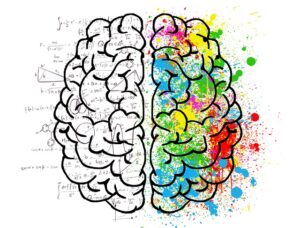Pragmatism, Essentialism, and Progressivism
While I can see merit in each of the three educational philosophies discussed this week: Pragmatism, Essentialism, and Progressivism, I find myself aligned with Pragmatism more than the other philosophies. Of course, each philosophy each has its flaws, so I believe a combination of philosophies would be the best course of action in today’s educational world.
Progressivism
Progressivism is my least favorite of the philosophies studied this week. While I agree that education should take a child’s likes and interests into consideration, I don’t think an education based solely on these desires will be enough.  For example, if I let my student’s wishes dictate all of our lessons; we wouldn’t study anything but how to play video games. While that may be fun, and may help develop eye-hand coordination, it’s not going to help them much in the real world.
For example, if I let my student’s wishes dictate all of our lessons; we wouldn’t study anything but how to play video games. While that may be fun, and may help develop eye-hand coordination, it’s not going to help them much in the real world.
Essentialism
I can see a lot of merit behind Essentialism, but it’s too structured and rigid for my taste. Unlike progressivism, essentialism doesn’t consider the student’s interests at all. While I believe, it’s important for students to learn essential subjects like reading, writing, arithmetic, science, history, etc; I think we also need to take a child’s interests and inclinations into consideration. Not all students are going to grow up to be Rhodes Scholars, and we need to keep this fact in mind when educating our students. Different students are going to learn at different speeds, and they will excel in different subjects. To subject them all to the same rigid, standardized testing as the only measure of assessment is unfair and unrealistic.
Pragmatism
To me, pragmatism seems like a reasonable compromise between being too rigid and too loose with a child’s education. Pragmatism seems to keep the child in mind while teaching essential subjects through interaction and experimentation. Pragmatism encourages “an open classroom environment that facilitates using experimental inquiry to examine and test beliefs and values” (Gutek, 2009, p. 91). This is what I want in my classroom. I want to be able to teach my students the essential elements of computer and software usage while keeping them interested by taking their individual likes and dislikes into consideration.
Conclusion
I think students learn best in an environment that encourages their natural curiosity while directing their focus onto the matter at hand. If the structure is too rigid, students’ rebel and teaching is even harder. If the structure is too loose, the students won’t learn the essential skills they’ll need to see them through into adulthood. A combination of philosophies, designed to create a stimulating, yet controlled learning environment, is what will work best for me.
Sources
Gutek, G. (2009). New Perspectives on Philosophy and Education. Upper Saddle River, NJ: Pearson.



